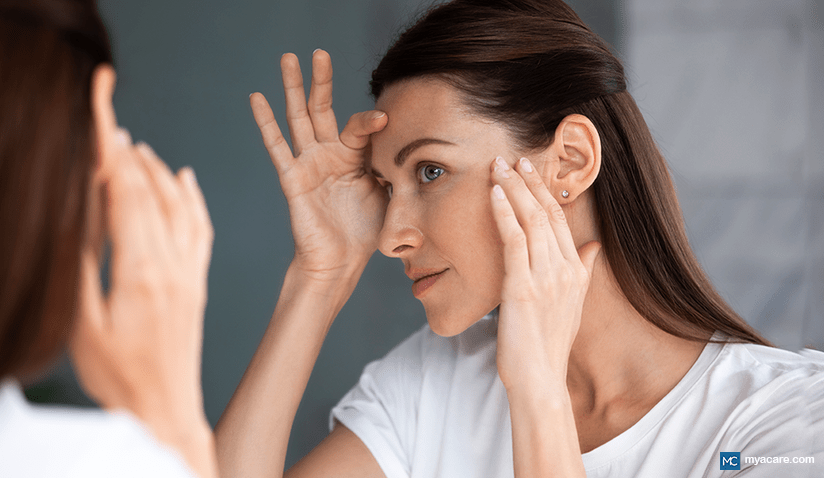LASER FACELIFTS: WHY CONSIDER ANTI-AGING LASERS

So, you’ve been on a strict daily skincare routine with your face wash, moisturizer, and sunscreen and you still feel like your skin is not looking its best? Well, join the billion other people that feel the same. Although skincare products are essential to keeping healthy and glowing skin, our natural aging process is sometimes overwhelming, and there’s no way around getting wrinkles and aging-spots that make us look older than we’d like to look.
If you want to go to the extreme, you can consider having facelift surgery. However surgery comes with risks and complications that you can avoid with less invasive procedures. So, how can you get a facelift without surgery?
Anti-aging lasers and laser facelifts use advanced technologies that can reverse skin aging and restore your young and smooth complexion. These innovative technologies work by stimulating collagen production in your skin to reduce wrinkles and lines, tighten your skin, and remove any imperfections.
Why does our skin age?
Sun exposure, pollution, poor skincare, and our body’s normal aging process all play a role in determining how old we look. When you age, your skin slows down many biological processes, including collagen production. Collagen is a protein, and it’s an essential component of many body parts, like our skin, soft tissue, and ligaments. Collagen plays a critical role in your skin’s health, and it’s responsible for its hydration, elasticity, and structure. When you age and start losing collagen, your skin will start showing fine lines, wrinkles, and folds. Anti-aging laser treatment and laser facelifts work by stimulating collagen production in your skin to reverse the damage caused by aging.
How do lasers reverse skin aging?
Laser devices use light energy in specific wavelengths to injure your skin (mildly) and stimulate it to repair itself by producing more collagen. Depending on the technology used, the beamed rays will heat up your skin surface (epidermis) and/or deeper layers (dermis) to break them and promote healing. This stimulated healing response will naturally increase your skin collagen production, leading to tighter and smoother skin with less pronounced wrinkles and imperfections. In addition to getting rid of wrinkles, lasers can make your skin look younger by fading out scars, treating redness, and balancing your skin tone to get a shiny and homogeneous complexion.
What are the different types of laser?
If you’ve been researching anti-aging laser treatments, you’ve probably already heard the terms “ablative” and “non-ablative”. Ablative and non-ablative lasers are the two main types of laser treatments used by dermatologists. They both can be utilized to rejuvenate your skin and reverse the aging process, however, they work a bit differently.
Ablative laser treatment works by wounding and removing the outermost layer of your skin (epidermis), clearing out any imperfections while promoting healing and collagen synthesis. This type of laser skin treatment is more invasive and intense, so usually, one session is enough to produce results, and the effects last longer. Nevertheless, more intensity means more severe skin irritation, so you might have red and swollen skin for a few days after the procedure.
Non-ablative laser treatment, on the other hand, is less intense and promotes collagen production using a different method. This technology is a non-wounding treatment, meaning that the epidermis is not injured by the non-ablative laser beams. Instead, the beams pass through your skin and heat the deeper layers (dermis) to promote collagen synthesis. This treatment modality is less intense than ablative laser, so several sessions might be needed to produce results. The advantage of non-ablative lasers is that they produce less swelling and redness after your treatment, since they do not injure your epidermis.
Your dermatologist will choose the best type or combination of laser modalities that are most suitable for your skin type and desired results.
What are some popular laser devices?
When it comes to medical lasers, there are tens of different devices used by dermatologists around the world. Most of the reputable laser brands deliver excellent results, and some devices offer unique and innovative technologies that make them stand out in targeting specific skin conditions like wrinkling and age-related damage. Some of the most popular laser devices used in dermatology clinics:
- Fontona 4D Laser Treatment: This non-ablative laser device was specifically designed to treat aging skin, and it’s used to give patients non-surgical laser facelifts. The Fotona SP Dynamis laser stimulates collagen and elastin in your skin to make it tighter and fuller while reducing wrinkles and fine lines. Many cosmetic dermatologists believe that the Fotona 4D can sometimes replace dermal fillers and other anti-wrinkle injectables with its wonderful effects.
- PiQo Laser: PiQo is another non-ablative laser device that is excellent in treating various skin lesions and promoting skin regeneration. This laser is non-wounding, and you will need minimal downtime after your procedure. Nevertheless, it’s beams are still intense enough to promote skin rejuvenation in just a couple of sessions.
- Fraxel: Your dermatologist can use Fraxel in ablative or non-ablative mode depending on your specific case. What’s special about this device is that it uses an innovative technology that distributes the laser beams over separate microscopic regions of the area being treated. This technology maximizes skin rejuvenation and minimizes downtime.
- CO2 lasers: These ablative devices deliver the most intense pulses but in return give the quickest and most long-standing results. The CO2 laser damages your epidermis to remove blemishes and heats up both your dermis and epidermis to promote healing and collagen synthesis. The only disadvantage is that this laser can have significant downtime (a week approximately), where your face might be sensitive, red, and swollen.
What can you expect after facial laser treatment?
When getting cosmetic procedures you always have to have realistic expectations. Lasers will not stop your aging (sadly), however, they can really slow down the process and reverse some of the unpleasant aesthetic effects. Women and men are usually delighted with how effective and easy laser treatment is, and many start noticing improvement after only one session. Several sessions might be needed sometimes to get to the desired result, with subsequent maintenance sessions every few months to keep your skin smooth and wrinkle-free.
Bottom line, If your wrinkles and aging-spots are bothering you, a non-invasive facial makeover might be exactly what you need. Laser treatment can make you look younger by tightening your skin and balancing your tone without the need for expensive injections or surgeries.
To search for the best health providers for dermatology in Croatia, Germany, Greece, Italy, Malaysia, Singapore, Slovakia Spain, Thailand, The UAE, the UK, and the US, please use our free search engine.
To search for the best healthcare providers worldwide, please use the Mya Care search engine.
Sources:
- https://www.asds.net/skin-experts/skin-treatments/laser-resurfacing
- https://www.uptodate.com/contents/ablative-laser-resurfacing-for-skin-rejuvenation
- https://www.uptodate.com/contents/nonablative-skin-resurfacing-for-skin-rejuvenation
- https://www.americanboardcosmeticsurgery.org/skin-resurfacing/the-top-8-things-you-need-to-know-about-laser-skin-resurfacing
Disclaimer: Please note that Mya Care does not provide medical advice, diagnosis, or treatment. The information provided is not intended to replace the care or advice of a qualified health care professional. The views expressed are personal views of the author and do not necessarily reflect the opinion of Mya Care. Always consult your doctor for all diagnoses, treatments, and cures for any diseases or conditions, as well as before changing your health care regimen. Do not reproduce, copy, reformat, publish, distribute, upload, post, transmit, transfer in any manner or sell any of the materials in this blog without prior written permission from myacare.com.



